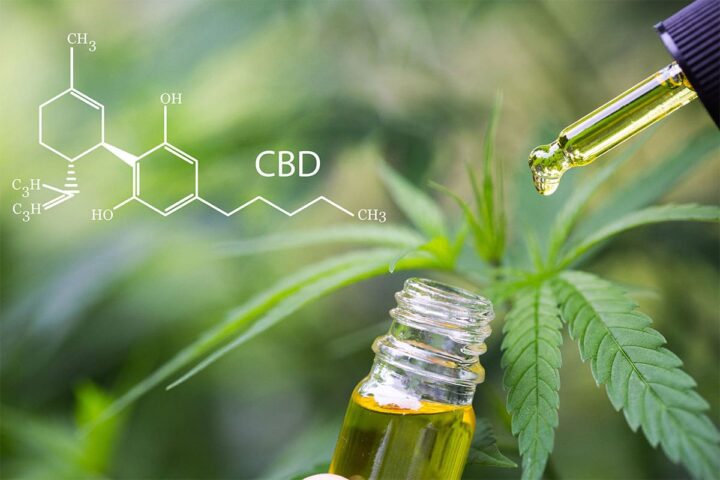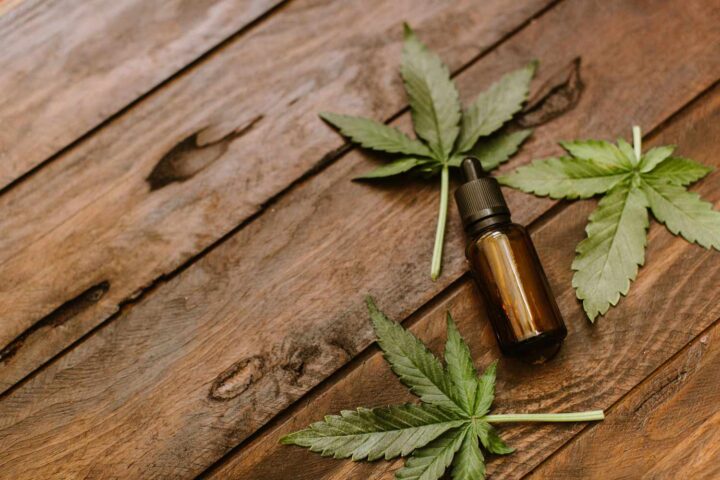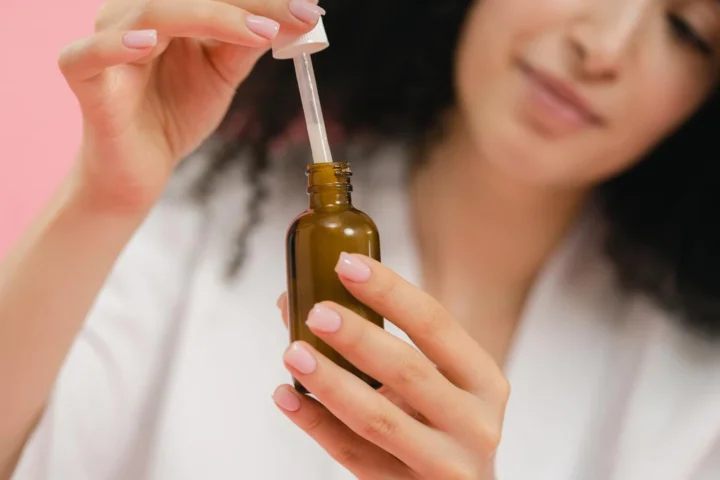CBD oil, hailing from the cannabis plant, has garnered considerable attention within the health and wellness domain owing to its promising therapeutic properties. As more individuals explore the realm of CBD, questions about its consumption and subsequent effects naturally surface.
A prevalent inquiry is, “What happens if you ingest CBD oil?” In this article, we’ll embark on an exploration of CBD oil ingestion, shedding light on the nuances and advocating for best practices.
Understanding CBD Oil
CBD, or cannabidiol, stands as a non-psychoactive compound inherent to cannabis plants. It harmonizes with the body’s endocannabinoid system, a regulator of numerous physiological functions encompassing pain perception, mood modulation, and immune response to provide health benefits to the users.
CBD oil is used to make various products, such as gummies, drinks, and tinctures, the most common form. For the purpose of this article, we will focus on CBD tinctures.
How to Take CBD Tinctures?
CBD tinctures are usually taken sublingually. But what does sublingual mean? The term “sublingual” designates the region beneath the tongue. This area boasts a network of blood vessels that can adeptly assimilate substances, rendering it an optimal conduit for swift and efficient absorption of compounds like CBD.
Opting for sublingual CBD oil administration translates to more direct entry into your bloodstream, potentially yielding quicker onset and heightened bioavailability, and better wellness effects in contrast to alternative methods like ingesting topical applications, or transdermal ways of consumption.
Ingesting CBD Oil
Now, what transpires when you swallow CBD oil instead of opting for the sublingual route? Upon swallowing, CBD oil embarks on a journey through your digestive system, necessitating transit through the liver before gaining access to the bloodstream.
During this intricate process, a fraction of the CBD might undergo degradation or metabolism, diminishing its potency. Consequently, you may experience delayed onset of effects and potentially require a higher dosage to attain the desired results compared to sublingual administration.

Best Time to Take CBD Oil Under Tongue
Determining the optimal timing for sublingual CBD oil consumption can be a personalized decision influenced by your specific requirements and daily routine. For numerous individuals, the morning and bedtime are commonly regarded as ideal times for sublingual CBD intake.
In the morning, incorporating CBD into your routine can foster a sense of tranquility and enhanced focus, which is particularly advantageous for individuals managing stress or anxiety.
Additionally, it might alleviate any morning discomfort or soreness. Conversely, taking CBD oil before retiring for the night can encourage relaxation and potentially contribute to better sleep quality, proving valuable for those grappling with sleep issues or insomnia.
Benefits of CBD Oil under Tongue
Embracing sublingual CBD oil consumption carries several advantages:
- Prompt onset of effects ─ Sublingual administration expedites the entry of CBD into your bloodstream, potentially affording more rapid relief for conditions like anxiety or pain.
- Enhanced bioavailability ─ Bypassing the digestive system and liver, more CBD can reach your bloodstream in its active form, elevating its bioavailability.
- Accurate dosage management ─ Sublingual ingestion facilitates precise control of your dosage, ensuring that you attain the optimal quantity to meet your requirements.
Why Opt for Sublingual Over Swallowing?
While both methods are effective, many experts lean towards the sublingual approach for a few reasons:
- Faster onset of effects ─ Bypassing the digestive system means the CBD reaches the bloodstream faster.
- Increased bioavailability ─ More CBD typically reaches the bloodstream compared to the ingestion method.
- Controlled dosage ─ Using the dropper, one can control the amount of CBD consumed accurately.
How Much CBD Oil Should You Take Daily?

Every Individual is Unique
The first thing to recognize is that everyone’s body is different. Factors like body weight, metabolism, and individual body chemistry can affect how one responds to CBD oil. What might be an effective dose for one person could be too much or too little for another.
The Purpose of Consumption
Why are you taking CBD oil? For general well-being, the required dosage might be different than for addressing a specific health concern. Some people take CBD oil for pain management, while others might use it for anxiety, sleep disorders, or other health issues.
Concentration Matters
CBD oil products come in various concentrations, typically measured in milligrams (mg) of CBD per milliliter (ml) of oil. It’s crucial to understand the strength of the product you’re using. A higher concentration means more CBD per drop, so you’ll need to adjust your dosage accordingly.
Starting Low and Going Slow
A standard recommendation for CBD beginners is to start with a low dose and gradually increase it. For instance, you might begin with 5-10 mg of CBD per day and then increase by 5mg weekly until you find a dose that works for you.
Monitoring and Adjusting
Pay attention to how your body responds. Are you noticing any changes in the symptoms you’re trying to address? Do you experience any side effects? Adjust your dosage based on your observations. It might take some time to find the perfect dose, so patience is key.

Consult a Healthcare Professional
While CBD oil is generally considered safe and has a good side effect profile, we suggest consulting with your healthcare professional, especially if you’re on other medications. A doctor or a pharmacist can provide guidance tailored to your individual situation.
Potential Interactions with Other Meds
CBD may have interactions with specific medications, particularly those that carry a grapefruit warning. If you’re on medications, discuss CBD oil usage with your healthcare provider to avoid any potential adverse interactions.
The Quality of the CBD Product
Always opt for high-quality, lab-tested CBD oil from reputable sources. The purity and potency can vary between brands, so choosing a trusted product ensures you’re getting the amount of CBD you expect.
Final Word
While swallowing CBD oil remains a viable consumption method, sublingual administration is widely regarded as the more efficacious and potent approach. Always exercise due diligence by consulting a healthcare professional to ascertain the most fitting mode and dosage of CBD for your distinct needs. Products are also a great way of enjoying the benefits of CBD.




